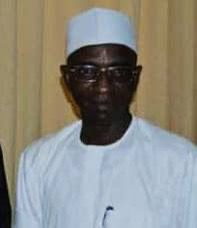Nigeria at a Crossroads: The urgent issues we can no longer ignore, by Hassan Ahmad
In every nation’s history, there comes a moment when the people must confront the hard truth: we cannot continue like this. Nigeria is at that moment today. We are a country blessed with human and natural resources, but cursed by poor leadership, greed, disunity, and a dangerous lack of urgency from those in power. Our streets, farms, schools, and markets are soaked in hardship and insecurity, while politicians are busy preparing for elections that are still years away.
This is a call, not to the government alone, but to all Nigerians — to rise, speak, and demand action before the rot becomes irreversible.
1. Security: The Nation Under Siege
From Sokoto to Zamfara, from Borno to Benue, and from Imo to Plateau, blood flows daily. Banditry, kidnapping, and terrorism have become normalised. Farmers cannot go to their farms, traders are kidnapped on highways, children are snatched from schools, and even in our cities, robbery and violent crimes are on the rise. Boko Haram may have been weakened in the Northeast, but its remnants still strike fear. In the Northwest, bandits operate as if they run parallel governments. In the Southeast, separatist violence and criminal gangs shut down communities. These are not just “security challenges” — they are signs of a state struggling to protect its citizens. The first duty of any government is to secure lives and property. Without this, no policy, no investment, no development will succeed. Urgent reform of our security architecture, better training and welfare for the police and military, and strong community intelligence systems must be a national priority.
READ ALSO: Nigeria Police in Chains of Sycophancy: From legacy to laughter, by Hassan Ahmad
2. Economic Hardship: A Nation on the Edge
The removal of fuel subsidy, forex instability, and uncontrolled inflation have produced the most punishing cost of living in decades. A bag of rice, a gallon of fuel, or even a loaf of bread now feels like a luxury to millions. Businesses are closing, jobs are vanishing, and the hope of the average Nigerian is fading. The agricultural sector, which should feed the nation and provide mass employment, is crippled by insecurity and poor infrastructure. The industrial sector is suffocated by high energy costs and unreliable power supply. We need urgent, targeted intervention — not empty slogans.
The government must support farmers with security, mechanisation, and market access. It must also give genuine support to micro, small, and medium enterprises, not just through bank loans that only the connected can access, but through fair policies, reduced taxes for struggling businesses, and direct investment in industries that create jobs.
3. Corruption and Governance Deficit
Every day, new stories emerge of missing billions, inflated contracts, and public projects abandoned halfway. While citizens are told to tighten their belts, government convoys grow longer, and public officials live in shameless luxury. This is the root of Nigeria’s problems — the theft of public resources by those who are supposed to serve. Until corruption is treated as treason against the people, until every stolen kobo is recovered and every thief, no matter their status, is punished, Nigeria will continue to suffer. We need forensic audits of ministries and agencies, transparency in contract awards, and a complete end to the culture of “business as usual.” The political class must understand: public office is not a personal ATM.
4. Disunity, Ethnic Agitation, and Political Distraction
Instead of healing divisions, some leaders fuel ethnic and religious hatred for selfish gain. The country is more divided today than at any other time since the Civil War. Meanwhile, politicians are already campaigning for 2027, ignoring the cries of the people in 2025. Citizens are drowning, but our so-called leaders are discussing who will be president next. This political distraction is not only shameful — it is dangerous. Every day wasted on political scheming is a day stolen from solving insecurity, hunger, unemployment, and crumbling infrastructure. We must reject leaders who divide us for their ambition. We must demand unity campaigns, interfaith and interethnic dialogue, and a leadership that sees Nigeria first, not tribe or religion.
5. The Way Forward: A Call to Action
The truth is bitter, but it must be told — Nigeria will not change simply because we complain. Change will only come when citizens, in their millions, reject fear, division, and blind loyalty to corrupt leaders. We must demand transparency, hold leaders accountable, and insist on results. Civil society, religious leaders, the media, students, and professional bodies must unite to pressure the government to act on security, economy, and governance. Our political will as a people must match our suffering. No foreign nation will save us; no miracle will drop from the sky. The choice is ours: to speak now or remain silent until silence becomes permanent.
Nigeria stands at a crossroads. One path leads to reform, unity, and progress. The other leads to further decay, division, and despair. The time to choose is now. And that choice is not only for those in Aso Rock or the National Assembly — it is for you, me, and every Nigerian who still believes this country is worth saving.
Hassan Ahmad writes from Wuse Zone 6, Abuja.
Follow the Neptune Prime channel on WhatsApp:
Do you have breaking news, interview request, opinion, suggestion, or want your event covered? Email us at neptuneprime2233@gmail.com





